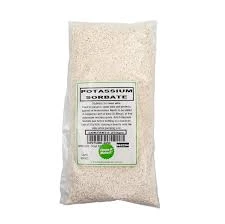
Exploring the Benefits and Applications of E339 Emulsifier in Food Industry
The Role of E339 Emulsifier in Food Industry
Emulsifiers play a crucial role in the food industry, acting as agents that facilitate the mixing of ingredients that typically do not blend well, such as water and oil. Among various emulsifiers, E339, known as sodium phosphates, stands out due to its multifunctional properties and widespread application. This article delves into the significance of E339 emulsifier, exploring its uses, benefits, and considerations in food production.
What is E339?
E339 is a food additive derived from phosphoric acid and is classified under the group of emulsifiers, stabilizers, and thickening agents. It is primarily recognized for its ability to enhance texture, improve mouthfeel, and aid in the distribution of ingredients in food products. Sodium phosphates, which include E339, are salt compounds that are generally regarded as safe for consumption and have been approved by various food safety authorities around the world.
Uses of E339 in Food Products
E339 emulsifier is widely used in various food applications, contributing to the stability and quality of many products. One of its main uses is in dairy products, such as cheese and processed cheese spreads, where it helps to maintain a smooth and creamy texture. It is also prevalent in sauces, dressings, and mayonnaise, where it ensures a stable emulsion and prevents separation of oil and water phases.
In baked goods, E339 can be found in mixes and doughs where it improves texture and shelf life. Furthermore, it is utilized in frozen foods, contributing to the overall consistency and preventing ice crystal formation during freezing, which can compromise the quality of the product. Its versatility extends to meats and seafood, where it can be used as a moisture-retaining agent.
Benefits of E339 Emulsifier
e339 emulsifier

One of the primary benefits of using E339 is its ability to improve the emulsification of ingredients, which enhances the quality and appeal of food products. E339 helps in achieving a uniform texture, eliminating the unappetizing separation of oil and water, which can occur in various food items.
Another advantage is its role in extending the shelf life of products. By stabilizing emulsions, E339 can reduce the likelihood of spoilage, ensuring that food maintains its intended flavor and appearance over time. Additionally, E339 may aid in nutrient absorption, as certain vitamins and minerals benefit from emulsification for better bioavailability in the body.
Considerations and Safety
While E339 is considered safe for consumption, it is essential to use it in moderation, as excessive intake of sodium phosphates can lead to potential health concerns, particularly for individuals with certain health conditions, such as kidney disease. It is advisable for manufacturers to adhere to established guidelines regarding the permitted levels of E339 to ensure consumer safety.
Moreover, consumer awareness regarding food additives is growing, leading many individuals to prefer products labeled as free from certain emulsifiers or additives. As such, food manufacturers are increasingly seeking cleaner label options while still achieving the desired food quality and stability.
Conclusion
E339 emulsifier, or sodium phosphates, plays a vital role in the food industry, enhancing the stability, texture, and shelf life of various products. Its multifunctional properties make it a valuable ingredient in many applications, from dairy to baked goods. Although it is recognized as safe, conscious consumption and adherence to recommended guidelines are essential for maintaining health. As the food landscape continues to evolve, the balance between using effective emulsifiers like E339 and meeting consumer demands for cleaner labels will remain a significant focus for manufacturers.
-
nitrile-rubber-honoring-strict-production-standardsNewsAug.22,2025
-
aspartame-ingredients-honoring-food-safety-valuesNewsAug.22,2025
-
fertilizer-for-balanced-plant-nutritionNewsAug.22,2025
-
cyanide-gold-processing-with-high-purity-additivesNewsAug.22,2025
-
formic-acid-in-textile-dyeing-applicationsNewsAug.22,2025
-
aluminum-hydroxide-gel-in-skincare-productsNewsAug.22,2025
-
Regulatory Compliance for Global Mining Chemicals UseNewsAug.12,2025
Hebei Tenger Chemical Technology Co., Ltd. focuses on the chemical industry and is committed to the export service of chemical raw materials.
-

view more DiethanolisopropanolamineIn the ever-growing field of chemical solutions, diethanolisopropanolamine (DEIPA) stands out as a versatile and important compound. Due to its unique chemical structure and properties, DEIPA is of interest to various industries including construction, personal care, and agriculture. -

view more TriisopropanolamineTriisopropanolamine (TIPA) alkanol amine substance, is a kind of alcohol amine compound with amino and alcohol hydroxyl, and because of its molecules contains both amino and hydroxyl. -

view more Tetramethyl Thiuram DisulfideTetramethyl thiuram disulfide, also known as TMTD, is a white to light-yellow powder with a distinct sulfur-like odor. It is soluble in organic solvents such as benzene, acetone, and ethyl acetate, making it highly versatile for use in different formulations. TMTD is known for its excellent vulcanization acceleration properties, which makes it a key ingredient in the production of rubber products. Additionally, it acts as an effective fungicide and bactericide, making it valuable in agricultural applications. Its high purity and stability ensure consistent performance, making it a preferred choice for manufacturers across various industries.





